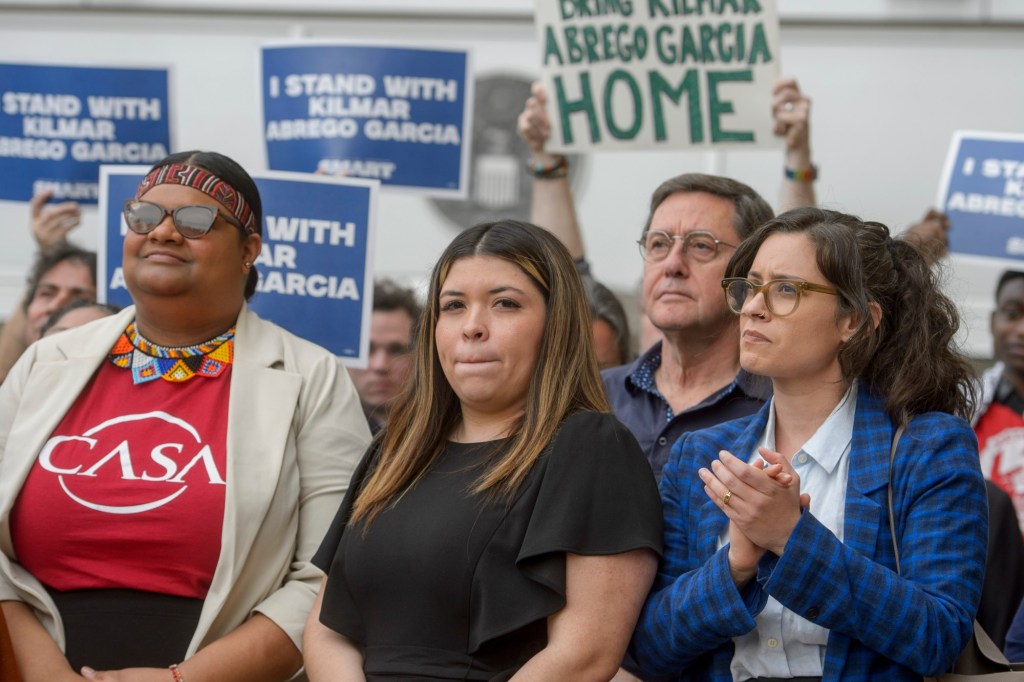
There’s so much wrong with the Trump administration’s deportation of Kilmar Armando Abrego Garcia to a Salvadoran super-max prison that it’s hard to know where to begin. But we should start with basic human decency.
Immigration and Customs Enforcement admits in a sworn statement that it deported the Maryland man because of an error — yet the administration refuses to return him home.
If the government makes a heinous error, it should take every measure to right the wrong. Abrego Garcia entered the country illegally in 2011, but a judge withheld his deportation to El Salvador based on evidence that a gang in that gang-infested country was targeting him because of his family’s business.
Salvadoran President Nayib Bukele—who has called himself the “world’s coolest dictator”—addressed the issue while sitting next to the president in the White House: “The question is preposterous. I don’t have the power to return him to the United States.” Bukele and Trump obviously have the power to return him if they choose.
Abrego Garcia has no criminal record in the United States or El Salvador. A government claim that someone is a gang member based on a confidential informant is not proof. Yet Donald Trump allowed a third-world despot to basically mock the U.S. justice system, as the Supreme Court ruled 9-0 that the administration has to “facilitate” his return.
Instead of complying, the administration is playing word games by claiming it actually complied by offering a plane to facilitate his return.
The bigger problem for Americans is that Trump is fostering a constitutional crisis by defying the spirit of the court ruling. The courts have no military forces to enforce their decisions, so our system ultimately depends on of our elected leaders’ fealty to the Constitution.
That the Trump administration refuses to do so is a stark reminder of our perilous situation in which core institutions underpinning our republic are being undermined for the convenience of the president.
Also in the room with Bukele and Trump was Stephen Miller, Trump’s deputy White House chief of staff, who falsely told reporters, “The Supreme Court said the district court order was unlawful and its main components were reversed 9-0 unanimously.”
This spin prompted Reason Magazine’s Damon Root to wonder, “Was he lying? Did he fail to correctly read the Court’s order and is now publicly operating based on his erroneous understanding? Either way, it was a disgraceful performance.”
This all matters because what we’re talking about here goes beyond Abrego Garcia and extends to how the president interprets and responds to court rulings. In a nation of laws, courts play a key role in checking government overreach and abuse. Frustrating those in power who skirt the law is what they’re for.
How this plays out will say much about whether the United States remains a constitutional republic — or whether it operates by the type of strongman rule common in distressed countries such as El Salvador.
Originally Published:



